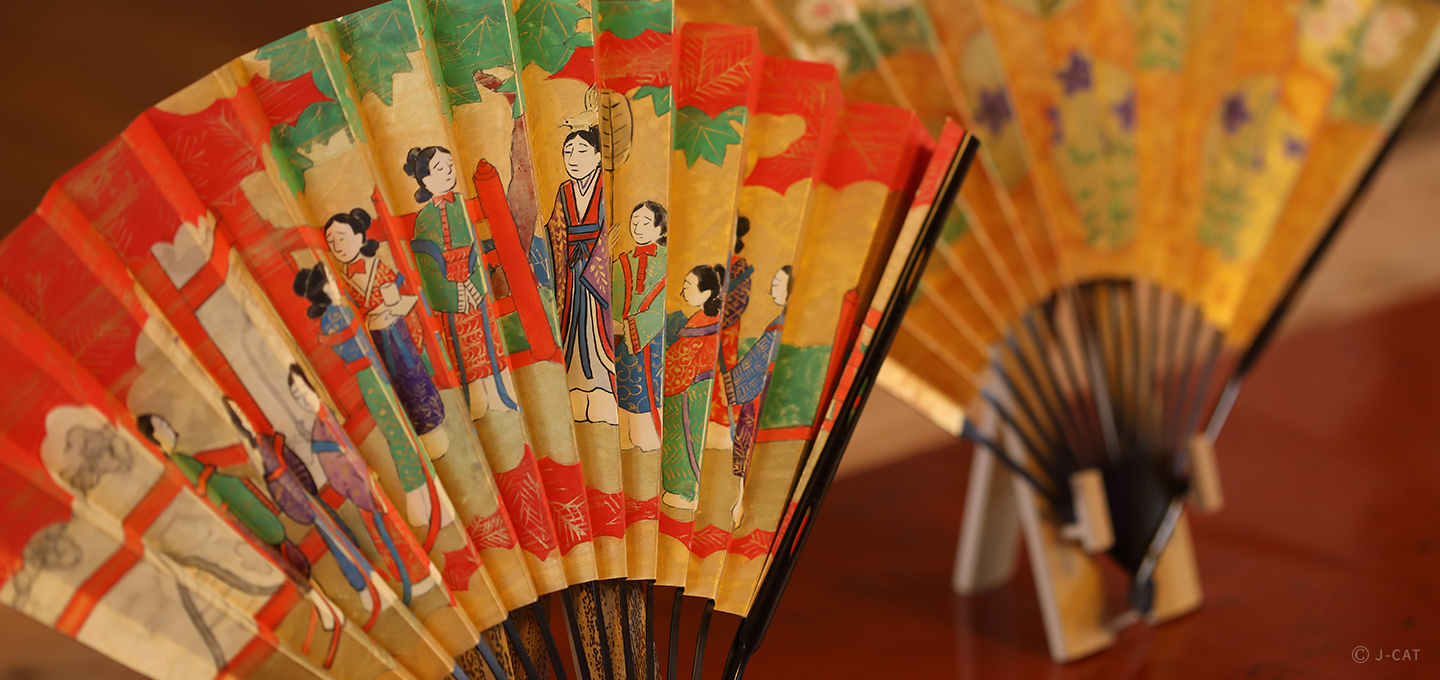
Special Experience
Tokyo
The Art and Artifacts of Noh – the World’s Oldest Stagecraft – Introduced by a Leading Performer
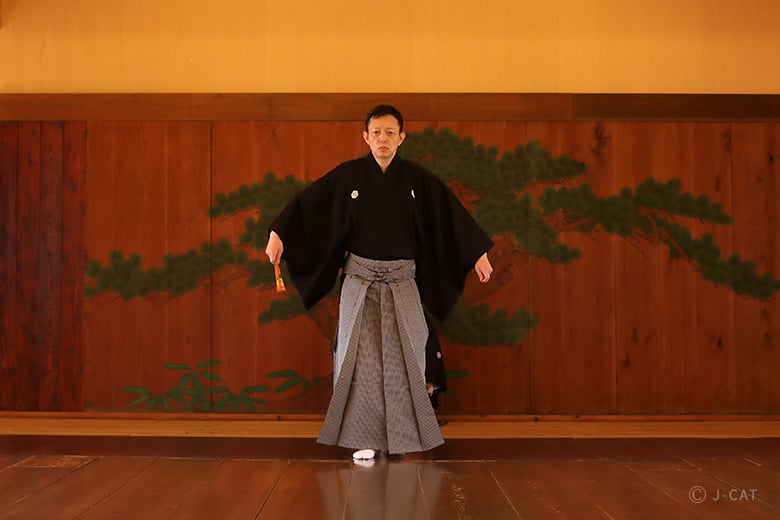
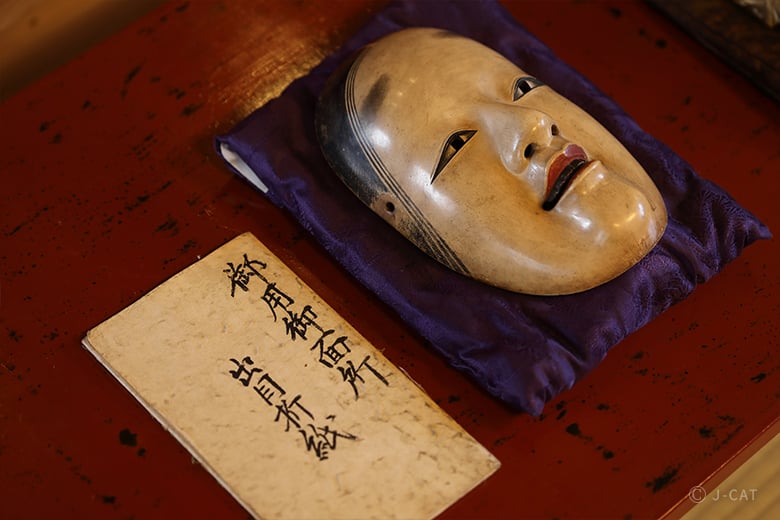
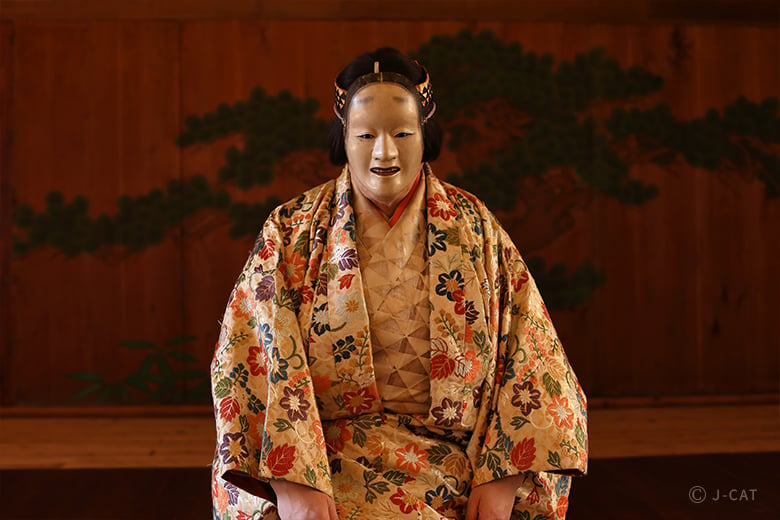
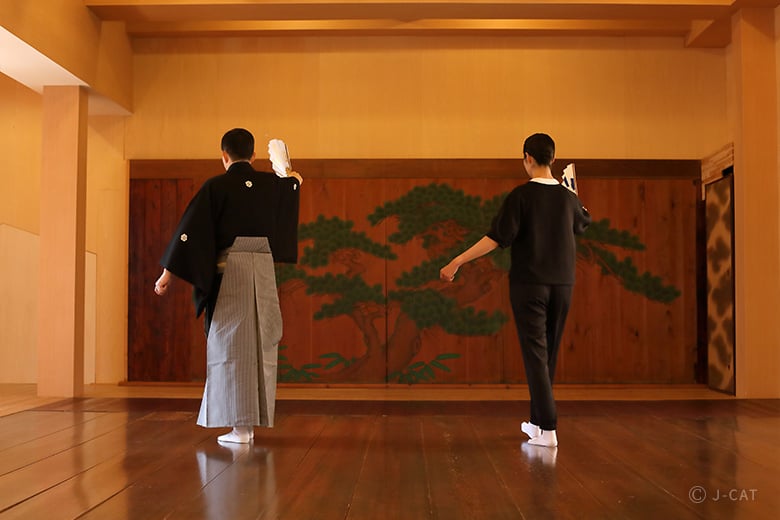
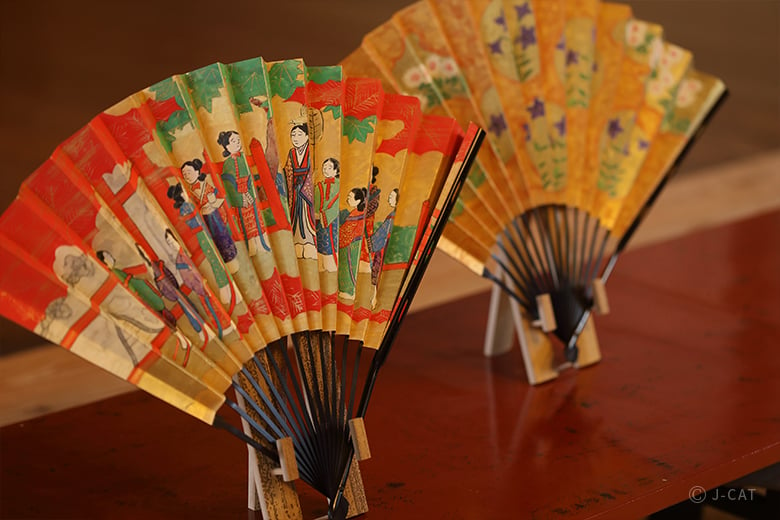
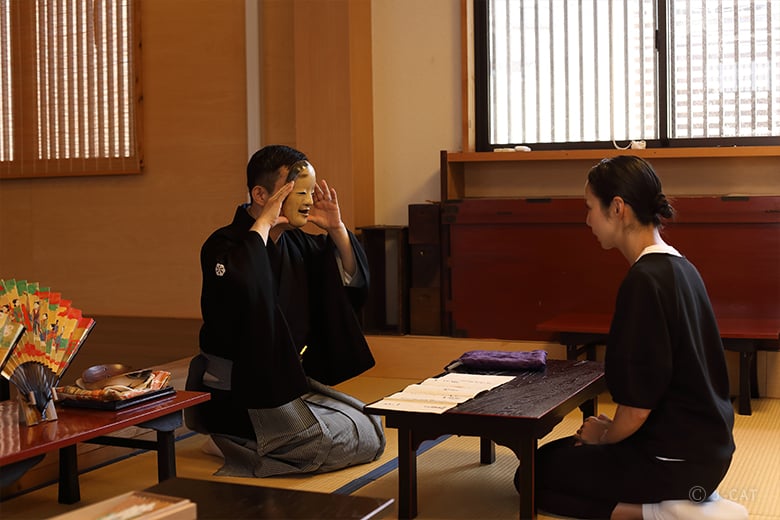
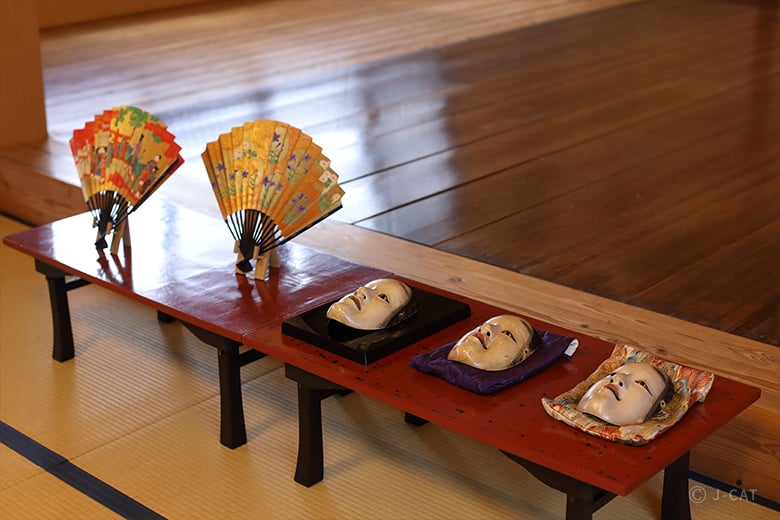
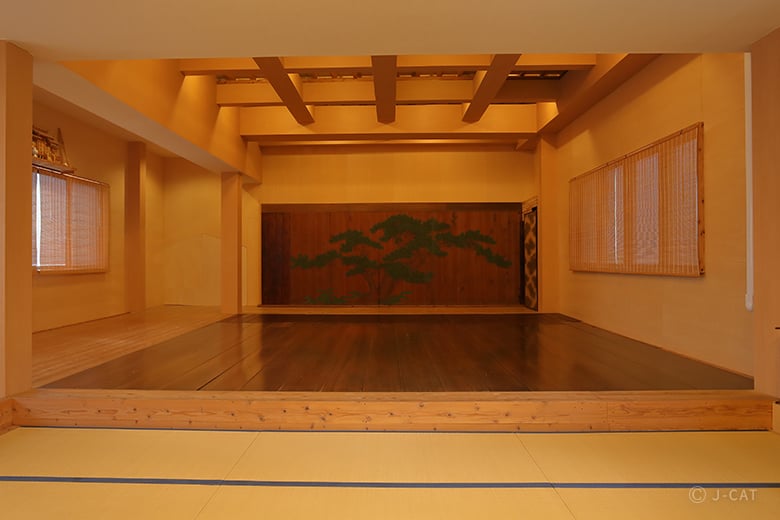
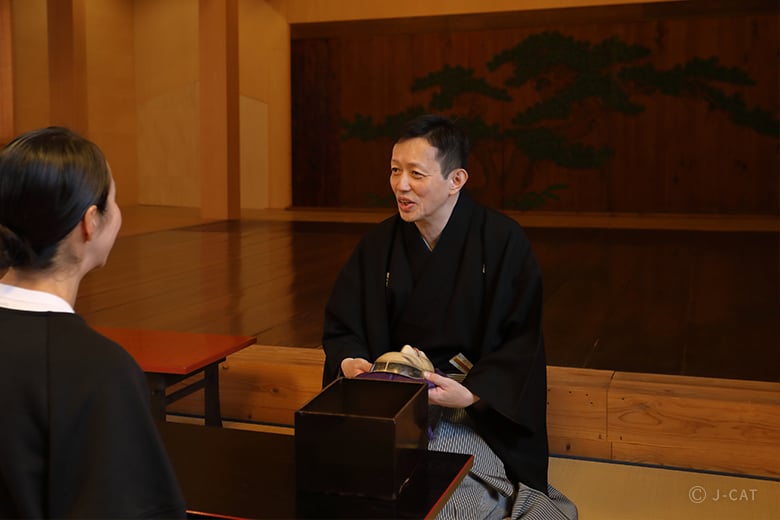
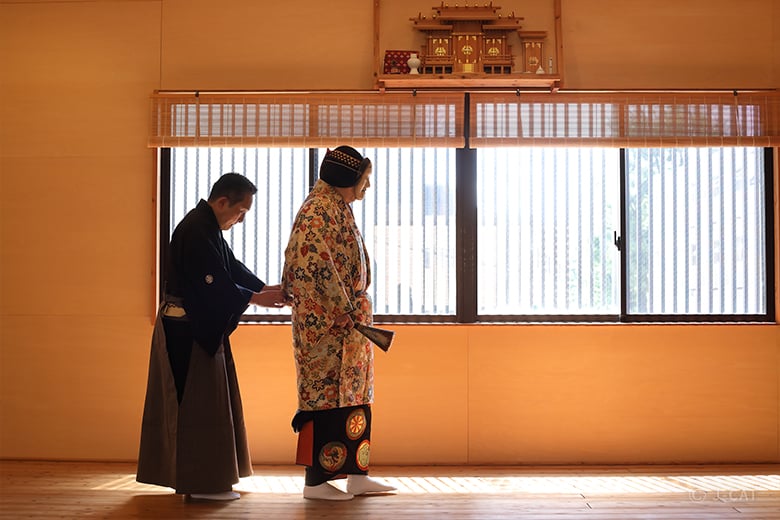
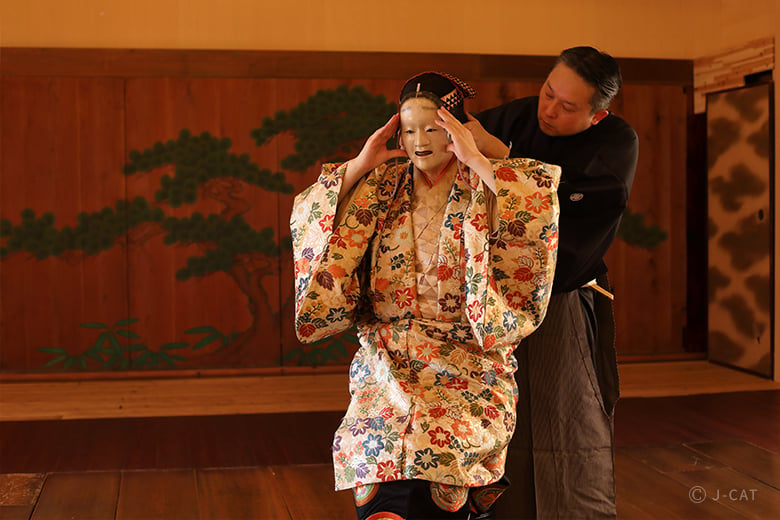
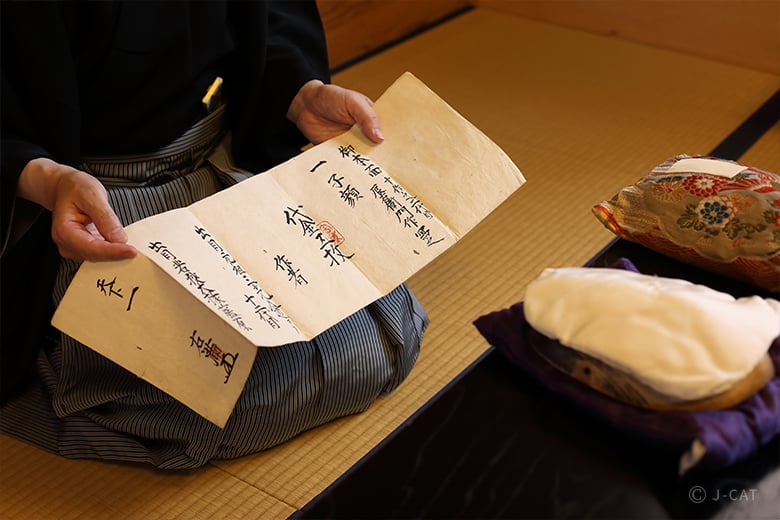
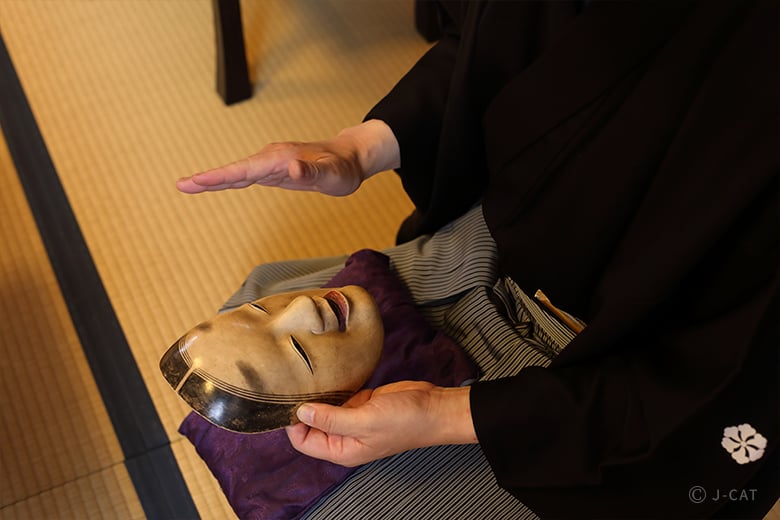
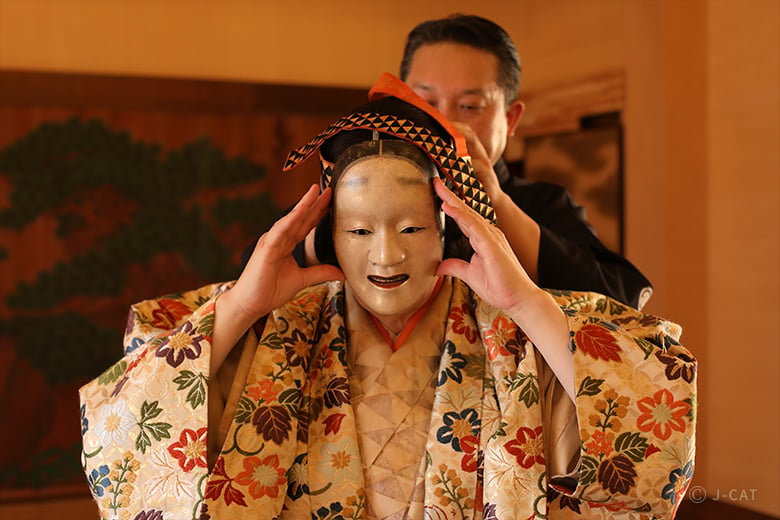
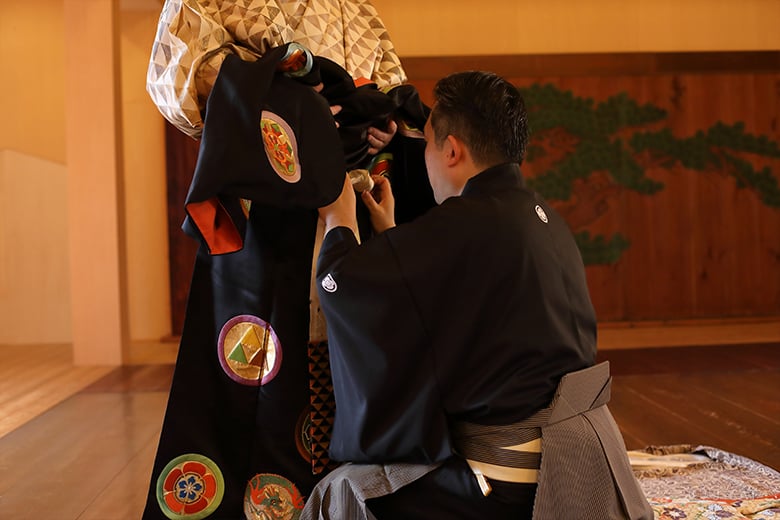
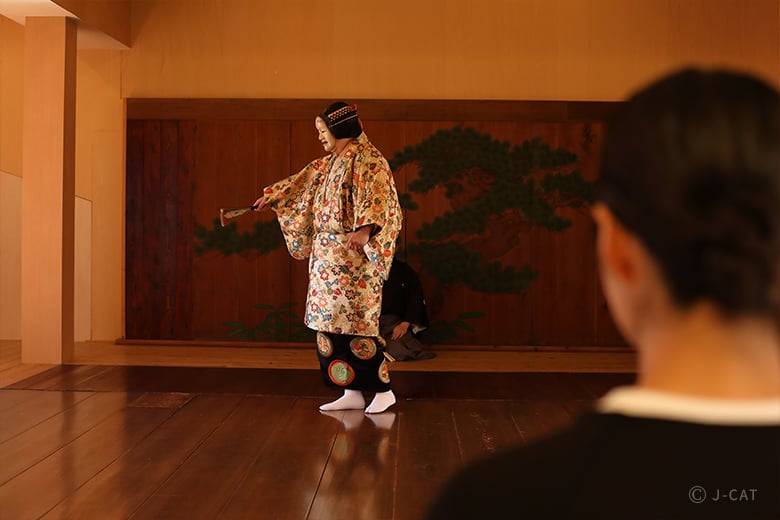
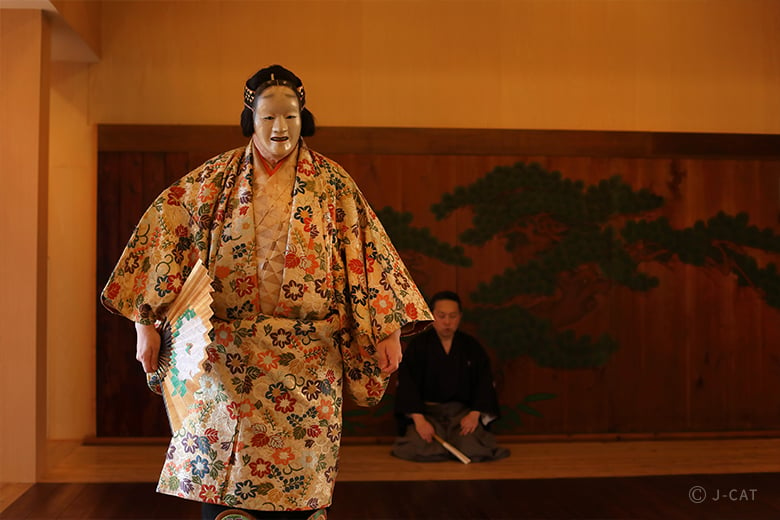
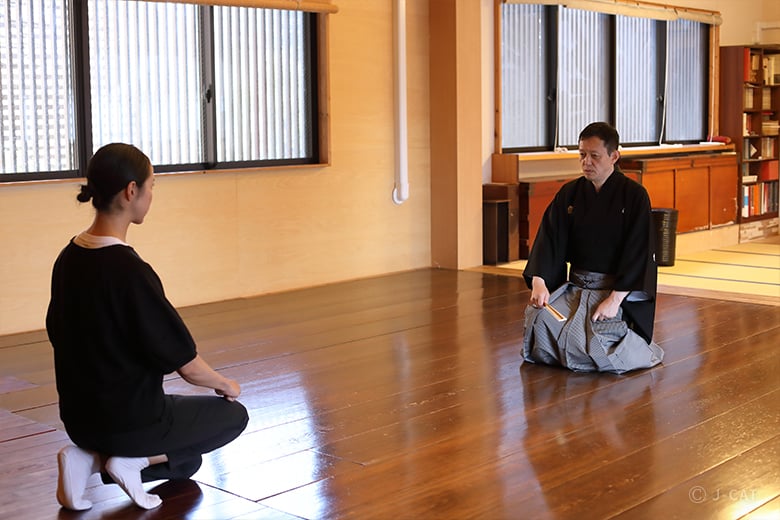
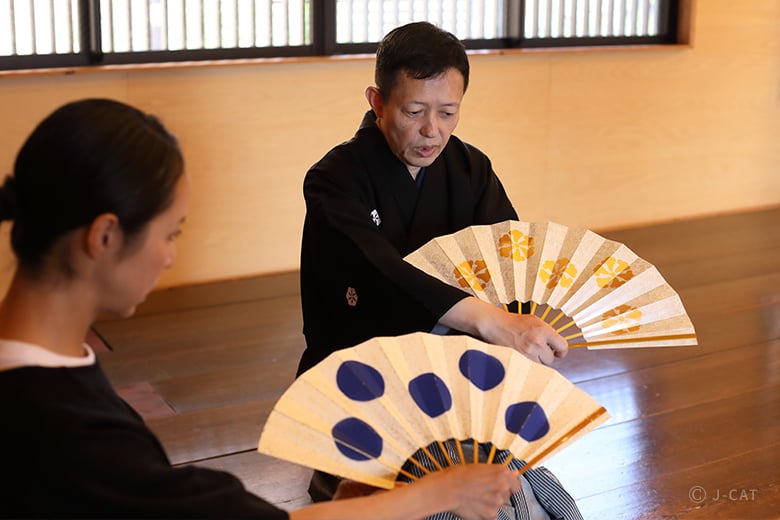
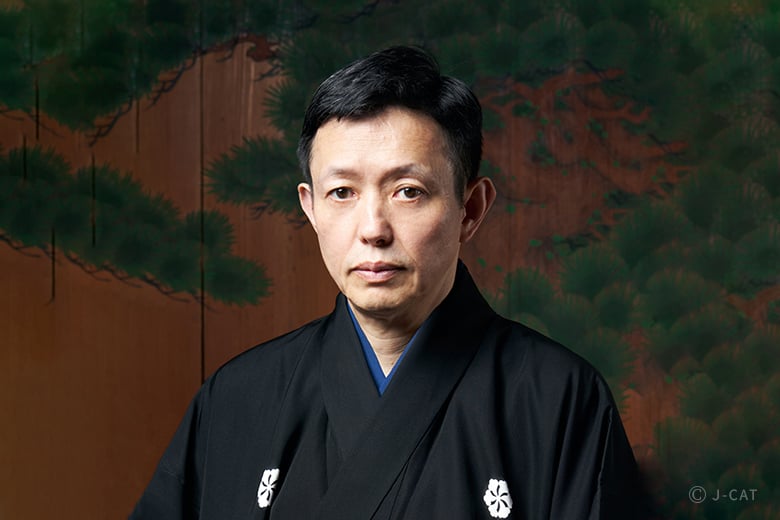
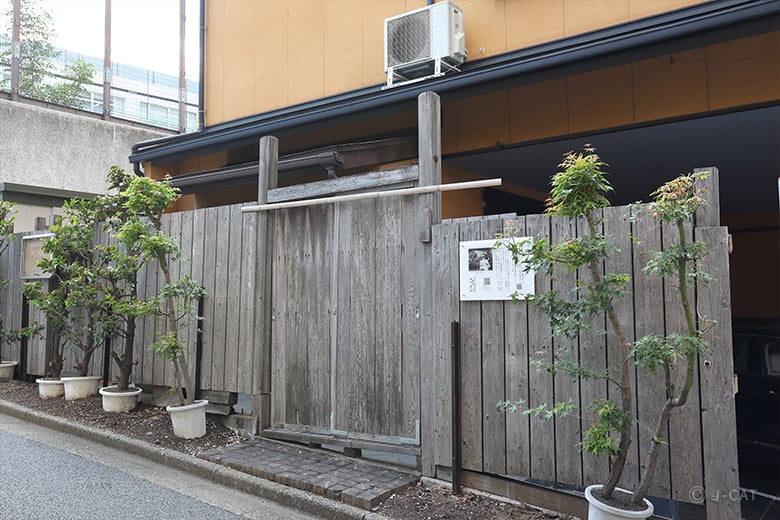
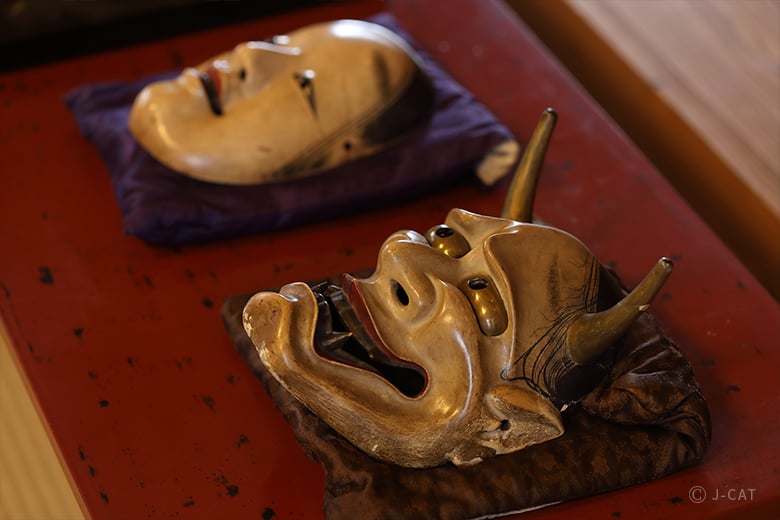






















Overview
The stagecraft traditions of Noh have been passed down through the generations for six centuries, making it the world’s oldest continuous dramatic art. In this experience, you can learn it backstage and front, directly from acclaimed lead and 21st head of the Sakurama family Ujin Sakurama. Guests will be offered an intimate viewing of his personal collection of historical Noh masks, costumes, and the Sakurama family’s private “Fujimi Stage”. After, discover the living characters hidden within the masks by taking in a performance of two Noh Shimai dances.
Key Features
・Enjoy a private session at the Sakurama family’s own Noh stage, learning the craft and lore of Noh – the world’s oldest living dramatic tradition.
・View the Sakurama private collection of Noh masks, fans, costumes, and other artifacts used in limited runs by past leads in the family.
・After the experience, enjoy free conversation with Mr. Sakurama with matcha tea and traditional sweets.
・As an option, take in an extremely rare private Noh performance by Ujin in full stage costume and mask.
Tokyo
90mins
from ¥44,000 /person
1 - 10 participants
Available in English
Cancel free up to 11 days prior
Details
Traditional Playhouse Tucked Away in Tokyo’s Sprawl: The Fujimi Stage
The Fujimi Stage sits eight minutes from Tokyo’s Iidabashi station. Run by the Sakurama family, which carries on the legacy of Konparu school, its main stage greets you immediately upon entering, backdropped by the “Kagami-ita”: a vivid and oversized artistic rendering of a pine tree. The space is imbued with a taut atmosphere that lends itself to a savory tension and singular focus.

The Fujimi Stage, private playhouse of the Sakurama family, whose boards must only be trod in fresh white tabi socks
Your guide and instructor is Ujin Sakurama, the 21st generation head of the Sakurama family. Ujin is grandson to Michio Sakurama, a legend officially canonized as Living National Treasure for his work. In addition to performing within Japan and abroad, Ujin is also active in a variety of activities aimed at popularizing Noh with a wider audience – including training, instruction, playwriting, and the restoration of old works. Here, you can learn all about the art from him directly, while enjoying a private viewing of his priceless collection of Noh masks and costumes. Immerse yourself in the history, tradition, and profoundly unique beauty of this most ancient form of theater.

Feel the allure of Noh as expressed by master and 21st Sakurama family lead Ujin Sakurama
A Rare Behind-the-Scenes Peek at the Stagecraft and Precious Artifacts of Noh
Sakurama starts you off with the basics of Noh and its history. Look back from the perspective of modern Noh to try to put yourself in the mindset of those who reveled in it hundreds of years ago. Developed during the Muromachi period (1336-1573) by father-and-son performing duo Kan’ami (1333-1384) and Zeami (1363-1443), Noh is one of Japan’s most characteristic classical performing arts. Its beautiful costumes and masks are immediately recognizable. Exclusive to this plan, Wabunka guests can view Sakurama’s private collection of priceless museum-grade masks (some with surviving certificates), costumes, and folding fans. Some of the fans were painted by Ujin’s grandfather Michio Sakurama, who in addition to performing at the highest level of Noh also studied Western-style oil painting under Ryusei Kishida.

Edo Period Noh mask with certificate (1749)

Folding fan with design motif by Ujin’s grandfather Michio Sakurama
Masks and costumes are holy items of Noh, venerated and summoned to life by performers for centuries. Up close, you can almost still hear the songs of those spirits of yore. Inside of each glossy vizard, the singular signature stamps of the master mask makers remain. To be so close to such rich history is a rare treat, and Sakurama’s explanations will fill it all with life and color – just like his performances on stage.

It is said that donning a Noh mask summons the life of its expression into the body
Katsura Yamaguchi, Japanese art expert and the president of fine art auction house Christie’s Japan, who appraises the value of Noh masks, was speechless when he first laid eyes on Sakurama’s collection.
"The essence of Japanese artworks is that most of them are initially tools. However, some objects lose their beauty as soon as they are no longer used. The tools (Noh masks, costumes, dancing fans) handed down in the Sakurama family have been used since the time they were made until now and for that reason, they are gems that have kept their original beauty for several hundred years."
Guests in this experience will also receive a pamphlet with Yamaguchi’s commentary on this curated selection of masks.
Total Abandon to a World of Dreams
After the viewing, Sakurama will put on two private Noh performances. You can observe up close how the expressive movements of the dance change to match each mask, and the contrasts between. If you are interested in a particular mask, you can request to see a performance with that mask before Sakurama begins.

Ko-omote and Hannya Masks
As an option (additional fees apply), take in an extremely rarified private performance by a Noh master in authentic costume and mask, on an authentic private stage. Enjoy an exceptionally rare behind-the-scenes look at how performers prepare, under the guiding hand of a master – a once-in-a-lifetime story you’re sure to share with friends and family for years.

As an optional add-on, witness what the public never does: a Noh master donning his costume and mask in preparation for the stage

Luxuriate in the acoustics and physicality of the space, watching Sakurama take center stage to inhabit his roles through song and dance (optional)
As Sakurama appears on the hashigakari – “bridge,” the colonnade-like walkup to the main stage – the tranquil calm gives way to an aura of gravitas. One such performance was of “Aoi no Ue”, a popular play about a love feud, whose elegant dance and song is a rapture to witness. The expressions on the mask seem to change moment by moment as the performer masterfully controls its angle under the light. Bask in this overwhelming and taut power, as you lose all track of time – all from up so close you can hear the actor breathing.
On Request, Take On a Private Performance
The lead role in Noh is called shitè. Shitè usually perform masked, and their stories are told through a combination of vocal chants called utai, dances called mai, and instrumentation called hayashi. This unique stylized aesthetic, developed over the course of 650 years, continues to enchant audiences even today.

It is said that it takes practitioners of this painstaking and meticulous craft a full three years to develop a proper and natural fan grip
Time permitting, guests can also choose to experience stepping on stage to perform Noh chants and dance themselves. First, you’ll learn a chant from a script, or utaibon, complete with learner notes. “Practice starts with imitation,” says Sakurama, so you’ll have to focus on his every masterfully-refined move as you follow the steps and recite the chant.
After this, you can perform a shimai dance on stage with a folding fan in hand. Sakurama will provide detailed guidance and simple instructions on points such as posture, fan grip, hand placement, and footwork. You can enjoy this extraordinary once-in-a-lifetime experience without worry or stress about missing a step.

The depth and feeling of Noh emerges from its simplicity of expression
A New Respect for Japanese Culture through Noh
The unique, hyper-minimalist expressive style of Noh transports you to another era – and another cosmos – engaging the full depth and breadth of the imagination with the power of the world’s most ancient stagecraft. Get up close to the allure and living history of this art form through an exclusive visit to the Sakurama family’s private Noh stage and a viewing of their private collection of Noh artifacts.

Forget even to breathe as you are swept bodily into another world by magnificent spectacle
Ujin Sakurama

Ujin Sakurama
Head of the Sakurama Association, performer of the Konparu school of shitè-kata Noh leads, and grandson of Living National Treasure Michio Sakurama, Ujin made his stage debut at the age of four.
In 2001, he was officially recognized as a designated holder of important intangible cultural properties, and in 2004 he assumed his current stage name as head of the acclaimed Sakurama Noh family. He has continued to perform Noh both in Japan and abroad, and also works tirelessly to make Noh accessible to a wider audience through training, instruction, playwriting, and the restoration of old works.
Location
Sakuramakai
Chiyoda City, Tokyo
Request for booking
Select first preferred date (JST)
February 2026
Sun
Mon
Tue
Wed
Thu
Fri
Sat
Instant Booking
Request Booking

17
Full

17
Unavailable
- Instant Booking: Your reservation is confirmed immediately upon payment.
- Request Booking: You will receive confirmation after the host reviews your request.
Tokyo
90mins
from ¥44,000 /person
1 - 10 participants
Available in English
Cancel free up to 11 days prior
Things to know
Contact Us
If you have any questions, please contact us using the form below.
We also accept bookings from corporate clients and travel agencies.